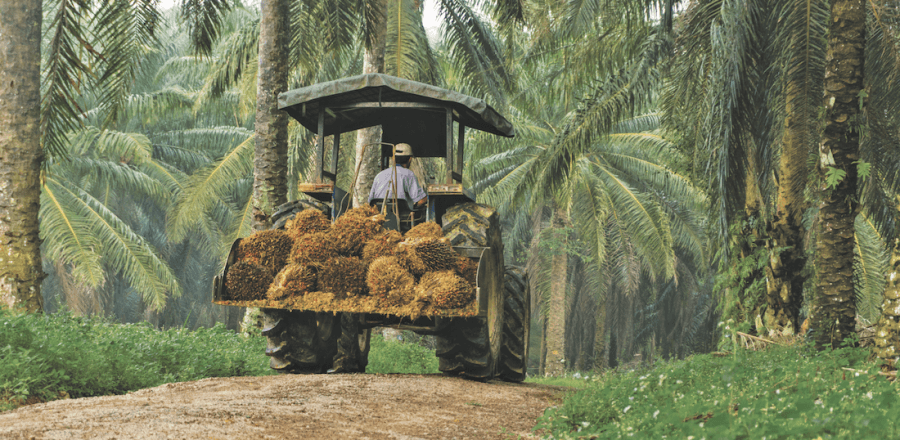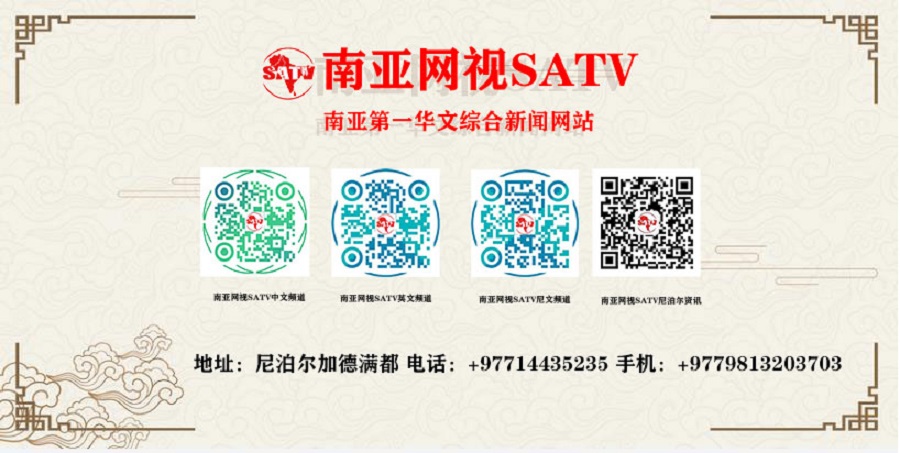
Fresh palm oil fruits are handled at a plantation. Palm seeds imported from countries including Malaysia are processed in Nepal before the oil is exported to India. Shutterstock
Nepal's palm oil exports to India may take a hit as the southern neighbour has slashed customs duty on crude palm oil from 7.5 to 5 percent to lower edible oil prices ahead of its state elections, Nepali traders say.
“With the cut in import tax by India, it is now not financially feasible for Nepali traders to export refined palm oil to India,” Ratan Lal Kedia, vice-president of the Nepal Vegetable Ghee and Oil Manufacturers Association, told the Post.
“We expect shipments of refined palm oil to India to drop to zero after its new policy.”
The world’s biggest edible oil importer reduced the import duty effective from February 13 in a bid to keep local prices in check and give a boost to domestic refiners.
According to Reuters, the reduction in the tax, known as the Agriculture Infrastructure and Development Cess (AIDC), will make it cheaper for Indian refiners to import crude palm oil.
The policy spells disaster for Nepali refiners who, revelling in tariff exemption privileges, have been importing crude palm oil and exporting the processed product to India.
Tariff exemptions on Nepali exports to India under the South Asian Free Trade Area agreement give domestic traders an advantage. Countries outside of South Asia are slapped with tariffs of 54 percent on palm oil and 45 percent on soybean oil.
According to the Nepal Development Update of the World Bank in December 2019, Nepal capitalised on this arbitrage opportunity and significantly increased exports of the two products—palm oil and soybean oil.
After the reduction in the AIDC, the import tax difference between crude palm oil and refined palm oil would widen to 8.25 percent, the report said.
“The export of refined palm oil has plunged to 5 percent within the last few days, and traders are exporting their unsold stocks," said Kedia.
According to the association, there are 20 soybean, sunflower and palm oil refineries in the country.
"Following the policy change in India, the production capacity of these factories will drop to 20 percent," Kedia said.
According to the Trade and Export Promotion Centre, Nepal exported 153,133 tonnes of palm oil worth Rs31.97 billion in the first six months of the current fiscal year ended mid-January, making it the country's second largest export commodity after processed soybean oil.
Shipments of processed palm oil to India in the first half of the fiscal year accounted for 26.90 percent of Nepal’s entire exports.
Nepal imported 207,957 tonnes of crude palm oil worth Rs27.49 billion in the first six months. The government collected Rs1.79 billion in import duty on crude palm oil, which is mainly imported from Indonesia, Malaysia and the Philippines.
Combined palm oil and soybean oil exports to India reached Rs68.66 billion in the first six months, raising hopes of crossing the Rs100 billion mark by the end of the fiscal year.
In fiscal 2019-20, palm oil became Nepal's top export product although the country does not produce a drop. Processed palm oil exports reached a record Rs18.31 billion in just a year.
The immense flow of edible oil from Nepal to India prompted the southern neighbour to allow only licence holders to import it in an effort to check cheap imports and protect domestic industry.
Subsequently, Nepal's exports of processed palm oil to India dived by almost 99 percent to Rs443,000 in fiscal 2020-21.
But Nepali traders did not stop exploiting the trade preference loopholes. Soybean oil exports next shot up to the top, knocking palm oil from the number one spot, as traders changed tack to keep exploiting trade preferential loopholes after the Indian government squeezed palm oil imports.
In the last fiscal year, shipments of processed soybean oil to India reached Rs56.65 billion, a steep climb from Rs12.69 billion previously.
Exports have kept ballooning. In the first six months of the current fiscal year, Nepal dispatched soybean oil valued at Rs34.26 billion.
The World Bank said that the edible oil business taking advantage of trade preferences was not sustainable.
Trade experts had warned that the business may collapse anytime because Nepali exporters have not fulfilled the terms and conditions of preferential treatment.
The South Asian Free Trade Area agreement, to which Nepal is a party, stipulates that goods with preferential origin are eligible to be imported and re-exported with lower duty rates or at zero rates if the requirements are met.
For Nepali exports to India to be eligible for tariff exemptions under this treaty, imported goods need to have at least a 30 percent value addition. Nepali trade experts have been saying that Nepali traders do not meet the 30 percent value addition requirement.
“Exports will be sustainable only if the factories are using domestic raw material,” said former commerce secretary and trade expert Purushottam Ojha.
"An industry based on mostly imported raw materials with little value addition will not last, and it is doomed to collapse one day as raw material prices are volatile globally, said Ojha.
“Countries like India keep on changing trade policies by increasing and reducing import duty and other tax provisions to benefit their refiners,” he said.
In 2002-03, Nepal’s exports of vegetable ghee increased enormously, but when the Indian government lowered the import duty, shipments from Nepal stopped completely.
India in its recent budget statement said it would reduce the duty on edible oil due to a sharp rise in the global price, a major driver of inflation.
Indian refiners have been asking New Delhi to change the import duty structure as it is cheaper to import refined palm oil than crude palm oil due to higher taxes imposed by producing countries on the crude product, according to Reuters.
India imports more than two-thirds of its edible oil needs, and has been struggling to contain a rally in local oil prices over the last few months.













